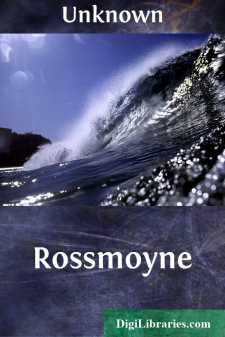Categories
- Antiques & Collectibles 13
- Architecture 36
- Art 48
- Bibles 22
- Biography & Autobiography 813
- Body, Mind & Spirit 142
- Business & Economics 28
- Children's Books 16
- Children's Fiction 13
- Computers 4
- Cooking 94
- Crafts & Hobbies 4
- Drama 346
- Education 46
- Family & Relationships 57
- Fiction 11829
- Games 19
- Gardening 17
- Health & Fitness 34
- History 1377
- House & Home 1
- Humor 147
- Juvenile Fiction 1873
- Juvenile Nonfiction 202
- Language Arts & Disciplines 88
- Law 16
- Literary Collections 686
- Literary Criticism 179
- Mathematics 13
- Medical 41
- Music 40
- Nature 179
- Non-Classifiable 1768
- Performing Arts 7
- Periodicals 1453
- Philosophy 64
- Photography 2
- Poetry 896
- Political Science 203
- Psychology 42
- Reference 154
- Religion 513
- Science 126
- Self-Help 84
- Social Science 81
- Sports & Recreation 34
- Study Aids 3
- Technology & Engineering 59
- Transportation 23
- Travel 463
- True Crime 29
The Justice and Necessity of Taxing the American Colonies, Demonstrated Together with a Vindication of the Authority of Parliament
by: Unknown
Description:
Excerpt
Of all the objects, which have since the revolution, engaged the attention of the legislature, the proper method of adjusting our present quarrels with the Americans is undoubtedly the most important. For as the riches and power of Britain depend chiefly on trade, and that trade on her colonies; it is evident that her very existence as the first of commercial nations, turns upon this hinge.
It cannot therefore be impertinent in any one modestly to offer his sentiments on this topick; that by the confrontation of different opinions we may strike out truth, as we do fire by the collision of flints; and that, as much light as possible may be afforded to our legislators to guide them through so dark and intricate a labyrinth.
This is the more necessary, as there can be found no similar case in all the records of history to serve as a precedent, or clew, to direct their steps; and all they can do is to grope their way by their own industry, and to employ their reason, as the only compass which can steer their course aright to this land unknown.
Without any farther preamble, therefore, I shall proceed to discuss this point, and to state the case fairly between the two contending parties, that those, who having like myself, no particular interest concerned, have consequently little prepossession for either side, may be enabled to form an adequate idea of the subject.
While the colonies were under any apprehensions from the encroachments of the French and Indians, they submitted to the British legislature without reluctance; because they were sensible of their inability to defend themselves, and of the necessity of taking shelter under the wings of their mother. But no sooner were the French kites and Indian vultures scared away, than they began to strut and to claim an independent property to the dunghil. Their fear and their natural affection forsook them at one and the same time. They now boast that they owe their present happy state to no power on earth but themselves; that they worked out their own salvation by their own right arm: forgetting that, had we not conquered at Louisbourg, at Quebec, and many other places; had we not constantly protected and defended them, the French and Indians would have long ago reduced them to the situation of the ancient Britons, and we should ere now have received some such letter as this, inscribed, The groans of the Americans. The barbarians, on one hand, drive us into the sea; the sea on the other, forces us back on the barbarians: so that we have only the hard alternative left us, of perishing by the sword, or by the waves.
Their insolence is arrived to such a pitch that they are not ashamed to assume to themselves the merit of bringing the last war but one to a period. According to them, what obliged the enemy to listen to terms of accommodation was not our success by sea, not the ruin of the French navy, not the total stagnation of their trade, not the march of the Russian auxiliaries; but the reduction, in a couple of short days, by a couple of little cannon, of a little island hardly discernable in a map, called Cape-Breton.
This undutiful, this disobedient behaviour of Britain's children abroad, owed, no doubt, its origin partly to the causes assigned above, and partly to the murmurs and discontent of those at home; the Sacheveril in London produced another in Boston; the spirit of disaffection and mutiny, which the harangues of a general raised in the cyder counties, those of a colonel conjured up in New-England....




![The Golden Mean or Ratio[(1+sqrt(5))/2]](https://digilibraries-com.s3.eu-central-1.amazonaws.com/covers/762d190f-63a4-489a-b897-ff78516bd105.jpg)







